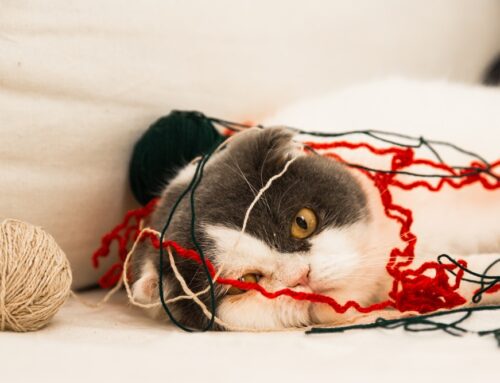Proper nutrition is essential for fueling your pet’s body, maintaining their healthy weight, and supporting their overall health. So, when your furry pal eats less than usual, you are naturally concerned. Our MountainView Veterinary Hospital team explains the many causes of inappetence in pets and how to encourage your pet to eat, ensuring they get the nutrients they need.
The importance of nutrition for pets
Nutrition is the process of receiving and using the proper food to promote maintenance and
growth. A pet’s sudden appetite loss can be concerning, and while minor, occasional fluctuations are normal, ongoing appetite changes can indicate your four-legged friend needs veterinary care. High-quality nutrition is the foundation for your pet’s short- and long-term health. Nutrition’s many benefits include:
- Strengthening the immune system
- Promoting growth and development
- Providing building blocks for cell formation
- Supporting healthy digestion
- Nourishing the skin and coat
- Delivering energy for countless internal processes, brain and nervous system function, and physical activity
Reasons a pet might not be eating
Your pet’s appetite can change for many reasons. These changes may be caused by a variety of underlying medical and behavioral issues, including:
- Health conditions — Many health conditions can cause a pet to eat less. These health conditions include:
- Dental disease — Periodontal problems are pets’ most commonly diagnosed issues, and the pain caused by swollen gums, diseased teeth, or oral masses leads to decreased food and water intake.
- Gastrointestinal (GI) upset — If your pet is vomiting or constipated, they likely don’t feel like eating. GI upset can be caused by many conditions, or it can be the primary health issue.
- Infections — Localized and systemic infections can lead to a decreased appetite.
- Arthritis — Joint disease is one of the most common conditions that affects pets, and the discomfort this condition creates can suppress a pet’s appetite.
- Cancer — Pets affected by cancer often lose their appetite, leading to a decline in weight.
- Kidney disease — Kidney disease causes toxin buildup in the bloodstream, negatively affecting your pet’s appetite.
- Liver disease — Liver disease commonly causes a pet’s appetite to dissipate.
- Congestive heart failure (CHF) — Pets affected by CHF often aren’t interested in food.
- Food changes — Changes in your pet’s food formula or brand can spark an abrupt appetite decrease, depending on your pet’s interest and digestive tolerance for the new food. Pets who experience digestive upset in response to new ingredients or a sudden diet switch may develop an aversion to the new food.
- Stress — Separation anxiety and pet-on-pet bullying can cause an animal to eat less, or only to eat in your presence. Environmental factors and routine changes can also cause a decreased appetite.
Tips for encouraging your pet to eat

How you encourage your pet to eat will depend on the problem’s cause. If you are concerned about your pet’s decreased appetite, schedule an appointment with our team to determine the cause and create a plan to get your pet eating again. Common ways to encourage your pet to eat include:
- Create a feeding routine — Pets thrive on routine. Feeding your pet at the same time—usually twice a day—can help regulate their appetite. Resist allowing your pet to graze, and put the food away within 15 minutes if it hasn’t been eaten. Doing so helps reinforce the idea of fixed mealtimes.
- Cut back on treats — If you feed your pet too many treats throughout the day, they may not be hungry at mealtime. Too many treats may not only result in disinterest in meals, but they can cause your pet to become overweight or obese. Treats should only make up 10% of your pet’s daily calorie allotment.
- Make mealtimes fun — Add some excitement to your pet’s mealtime with a puzzle feeder or food-dispensing toy. These items make eating a more stimulating and rewarding experience.
- Mix things up — Sometimes, pets get bored with their food. Introducing new flavors or mixing in a bit of wet food with dry kibble can make meals more appealing. However, any dietary changes should be made gradually to avoid upsetting your pet’s stomach.
- Work up your pet’s appetite — Regular exercise and play can stimulate a pet’s appetite. A good play session before mealtimes can make them more likely to eat their food with enthusiasm.
While a minor decrease in your pet’s appetite over a day or two likely isn’t a problem, persistent appetite loss can indicate that your four-legged friend has a serious health issue. If your pet’s appetite has decreased, schedule an appointment with our MountainView Veterinary Hospital team.









Leave A Comment